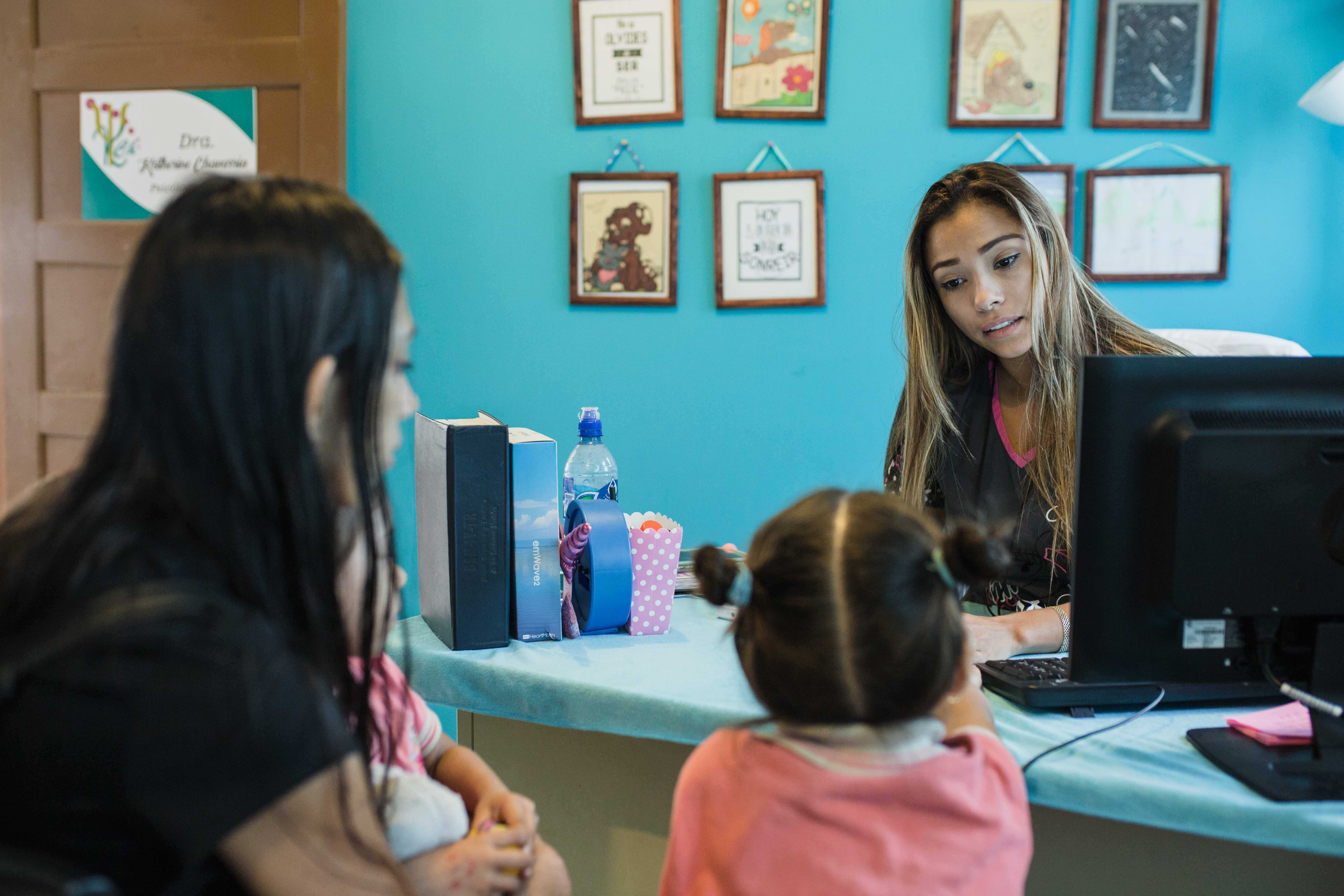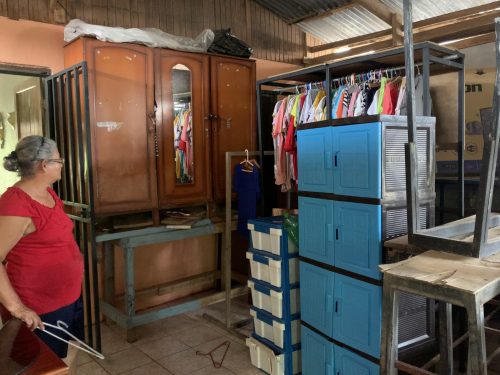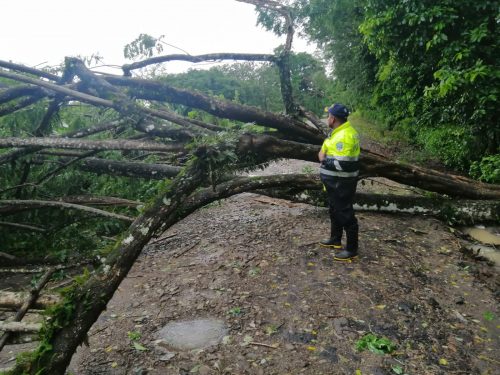
The Creciendo Juntos Clinic, located in Carrillo, Guanacaste, has detected their underage patients at social risk are suffering more anxiety and stress symptoms as a result of the new pandemic.
Right now they are following 11 boys and girls with obsessive compulsive disorders, which are triggered by unusual circumstances like new hygiene measures, or because they perceive they do not have enough money at home. In other cases they are also afraid of a family member getting sick or dying.
They bite their nails, their hair, they are extremely nervous or afraid, or they develop the trichotillomania, that is when they tear off their hair, eyebrows or eyelashes,” explained Katherine Chavarría, psychologist at the medical center.
Chavarría recommends paying attention to other behaviors that may go more unnoticed such as children stuttering, isolating themselves or developing shyness and attention deficit.
Another concern of the psychologist and her partner in general medicine, Mariam Méndez, is that seven of these children, who have been diagnosed with prediabetes, could aggravate their condition “because anxiety triggers a greater appetite or because they do not have enough space in their homes to play,” Chavarría said.
“This makes them more vulnerable. The seven cases I mention are at risk and if they are not taken care of, it will end up in diabetes,” she added.
Non-profit association has alliance with CCSS and public schools
There are only ten professionals in psychology distributed in the main public health centers throughout Guanacaste, as stated in 2018 by Warner Picado, the regional director of health services.
Ten specialists cater to more than 380,000 people living in the province, when the ideal, according to the Pan American Health Organization (PAHO), would be one for every 10,000 inhabitants (in this case, 38). None of them is solely focused on children, and treatment in private practices is financially inaccessible for many.
Faced with this situation, psychologist Katherine Chavarría pointed out seven recommendations for parents:
- Stay calm and be comforting: According to the doctor, many of these mental health disorders arise because children absorb the concerns of the adults around them. “There are parents who have come to consultations because they lost their jobs, because the child asks for milk and the family cannot afford it, because they live in vulnerable conditions. We are all living that, because the economy has been affected, but we adults must try to remain calm and be comforting because they are going to copy our emotions,” explains Chavarría.
The specialist also emphasizes that you should not instill fear in your son or daughter, nor try to discipline them using the virus as a reference. For example, it is wrong to use phrases like “if you don’t behave, the coronavirus will come.” - Always convey that family, friends, and neighbors are okay: Children may worry about their neighbors, friends, grandparents, or other family members. “We must let them know that, even if we don’t see them, the relatives and everyone are fine,” says the psychologist. For this, she says there are some alternatives, such as putting children and their friends or family in contact through calls, or even sending them food. “It is important not to go to the extreme of prohibiting affection or playing between siblings who are under the same roof,” she adds.
- Allow them to show their emotions: Children may not be very expressive, despite having a lot on their hearts and minds. For this reason, the doctor recommends implementing strategies to help them show their emotions. For instance, you can use a bag or a box for the child to deposit the emotions (anger, sadness, confusion, joy… ) he has felt during the morning and, in the afternoon, get together to analyze the contents of that box and talk about what triggered each of those emotions at the time. The way they express themselves will depend on their age. With children from 3 to 7 or 9 years old, drawings or images of faces with different emotions can be used. Older children can write them down and put them into the box or bag.
- Maintain routines at home: The doctor recommends that parents sit down to have breakfast with their children, without any distraction nearby such as televisions, cell phones or radios, and that once they’re done, they spend 45 minutes or an hour studying. “Then they can make a game plan: use traditional playing techniques such as elastic, rope, things that represent exercise, that do not promote only sedentary lifestyles, or games like jackses and trading cards, which help boost concentration and avoid the attention deficit,” she explains.
- Not listening to news all day: The doctor emphasizes that boys and girls are like sponges that absorb everything they hear. “You have to be informed, but we can do it away from the children, so that they do not hear the number of deceased or hospitalized people on a daily basis,” says Chavarría. Furthermore, she emphasizes it is important to pay attention only to official information, to the necessary and reliable information. “And I will not be commenting all day with my loved ones to listen to such audio or such thing that is being said somewhere,” recommends the doctor. According to the specialist, children absorb even the emotions they see on our faces.
- Children have the right to know the truth: It is important to find illustrative strategies to explain the Covid-19 situation and hygiene measures, considers the psychologist. One way to do this is to tell them a story with characters, using their toys, cars or dolls as puppets. Also, you can make up a song or dance for hand washing time. “Something that is fun and doesn’t make them think of it as a compulsive obsession,” she says.If the child asks something and you don’t know the answer, you should commit to finding the information and answering their question later on. “It’s not about saying ‘oh, I just don’t know.’ But ‘what a good question my love, how smart you are. I’m going to study this and at night I will have an answer for you.’ I look for the answer and I transmit it strategically”, she explains.
Calling the virus an “invisible bug” or saying that sick people “are not doing so well” helps protect their emotional well-being, which is a priority at this time. “Then there will be time for scientific training, but for now it is better to use those euphemisms to offer clarity, considers the United Nations Children’s Fund (UNICEF) in a guide published this year on how to communicate the pandemic to boys and girls.
- Focusing on the solution and not on the problem: Although it is necessary to convey and explain what is happening, in this case with the coronavirus, it is more relevant that we make them feel that we can solve the situation by applying hygiene measures and by staying at home. “I explain them that it can be dangerous, but that we can do something,” says the doctor, adding that we can explain that they are healthy and have the solution.
Bonus: UNICEF also recommends taking time to clear up and debunk misunderstandings that can lay the foundation for stereotypes and long-standing biases. Over time, those perceptions can become more serious. For example, it is important to delete phrases like:
- “My foreign neighbor is a coronavirus.”
- “If your grandmother coughs, she is going to die.”
- “You have to avoid old people.”
- “Poor people spread diseases.”
If you take care of minors, we also recommend you to download this story called “My hero is you”, to explain what is happening to the little ones.







Comments